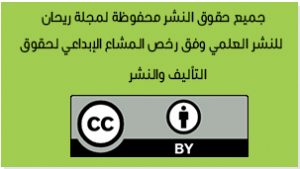Kur’an-ı Kerim’deki “ çağrı ” ayetleri, elçilerle kavimleri arasındaki çağrı, örnek olarak Al-i İmran suresinin 64. ayeti, -dil ve belagat çalışması-
آيات النداء في القرآن الكريم، النداء بين الرسل وأقوامهم، الآية 64 من آل عمران أنموذجاً – دراسة لغوية بلاغية –
The methods of discourse and communication among humans vary, and this embodies the nature of human beings, as they are born with a dire need to deal with each other. This created an incentive for them to supply this need with mechanisms and methods that meet this need and satisfy this desire, so these mechanisms became numerous, and these means varied. Among them, if not the most important, is the style of appeal. Due to the importance of this method, and its frequent use in divine revelation, the writer addressed it in his article entitled: Verses of the Call in the Holy Qur’an, the call between the Messengers and their people, verse 64 of Surat Al Imran as an example, a linguistic and rhetorical study. The motivation for this was due to the importance of communication and its various methods, and since the call is one of the most important, it was chosen. Because the messengers and prophets are role models for humans and lamps of guidance and torches of light for them, the choice fell on the discourse between the messengers and their people. The writer dealt with this topic after the summary and introduction in several paragraphs. The first was a pause with rhetoric and appeal in order to progress from general to specific, and then study the verse that is the subject of the study, by introducing Surat Al Imran briefly in terms of the name, number of verses and place of revelation, and then studying the verse linguistically. And rhetorically. Then a summary of what the writer concluded through the lessons drawn from the study, and the article concluded with the results and recommendations reached by the writer, then a conclusion, then a list of sources and references.
Keywords: Calling verses, The Messengers, The Peoples, Dialogue, Rhetoric of speech.
Prof. Dr. Mustafa AGÂH, Bingöl Üniversitesi, İslami İlimler Fakültesi, Bingöl – TÜRKİYE
Hasan AL HAMAD, Doktora Öğrencisi, Bingöl Üniversitesi, Sosyal Bilimleri Enstitüsü, Arap Dili ve Belagatı, Bingöl, Türkiye
 مجلة ريحان للنشر العلمي مجلة علمية، محكمة، شهرية، مفتوحة الوصول
مجلة ريحان للنشر العلمي مجلة علمية، محكمة، شهرية، مفتوحة الوصول
